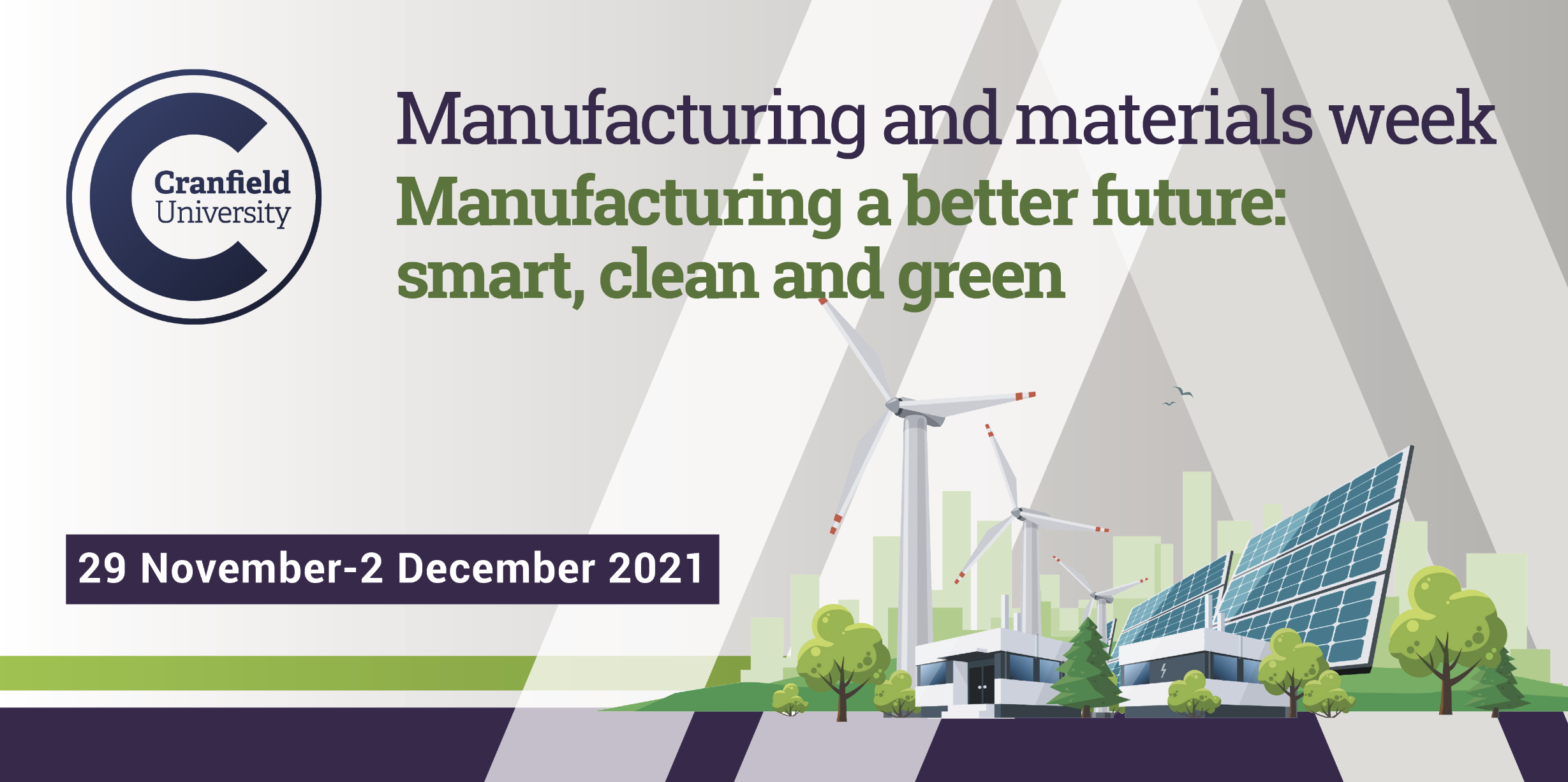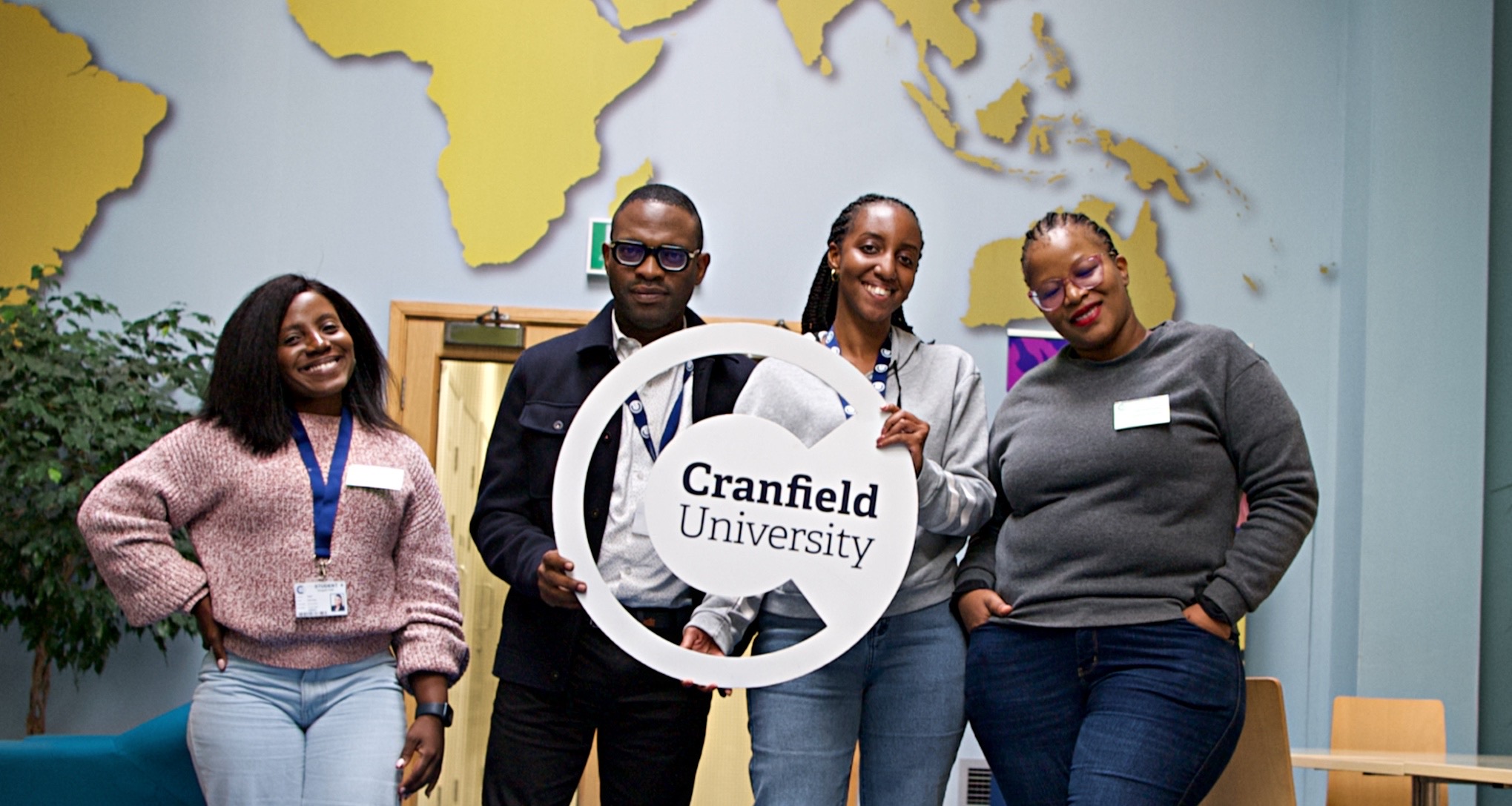Net zero – “The only mega project we want to be proud of in our lifetime.”
16/11/2021

The decarbonisation agenda has been talked about by politicians the world over. In 2015, the Paris Agreement dramatically stated that the world needed to limit global warming to 1.5 Celsius compared to pre-industrial levels, by 2050. The original intention of the Paris Agreement was to reduce CO2 from 53 billion tonnes down to 25 billion tonnes by 2030. Yet since 2015, we have only managed to collectively reduce emissions by 4 billion tonnes.
Now, with COP26 this month, we need to take stock, review, adjust and reassess the climate change agenda, in the light of Covid 19 pandemic and the events of the last 18 months. The ambitious deadline of 2030 is fast approaching and put simply, we don’t have enough time.
John Patsavellas is a Senior Lecturer in Manufacturing Management at Cranfield’s Sustainable Manufacturing Systems Centre.
“We have a situation where there is a lot of talk amongst politicians across the globe. The Ambition Coalition, an informal group of approximately 61 countries within the UN Framework Convention on Climate Change (UNFCCC), is committed to advancing progressive proposals on climate ambition. But they (and we) need to be encouraging America, Russia and China (the biggest CO2 producers) to make greater commitments. Without their active involvement and scale, we have no chance of hitting the 2030 targets.
The challenge is getting to net zero across multiple sectors, from construction, waste, agricultural, to general business, and manufacturing. We know that manufacturing has a huge need for energy. On a good day, 56% of the the UK’s manufacturing industry energy requirements come from hydrocarbon. While we are certainly looking at the right replacements – hydrogen to replace natural gas and renewable clean energy sources – this is still at an early stage.
The stark truth is we haven’t done enough, the climate healthcard does not look good, and Covid-19 has only moved the dial in the wrong direction. Here in the UK we actually have a great narrative. Yet even with the commitment of politicians across the Government, we don’t have a great track record of coordinating major projects.”
Part of the research at Cranfield considers why complex mega projects do not adhere to timelines. When one organiser or individual is involved in a project, there is optimism bias around the timeline, but this falls down when multiple parties are involved. The Elizabeth Line (Crossrail) in London is a great example of this; taking decades to deliver, hugely over budget, with the timescales changing so many times. It is the UK’s equivalent of New York Second Avenue, which took almost 100 years to come to fruition!
John sets out the challenge. “The race to net zero is a mega project and as such, requires mass coordination. It needs an enlightened and well resourced project team, creating the right sub-groups to generate a positive evolving movement that contributes to rapid change. The long term plans must transcend parliaments and have a cross parliamentary political structure. For a specific industry to decarbonise, we need to look at emission incentives, as well as ensuring the activity is trackable, transparent and reportable to the public. We need to put talented, open-minded and inclusive project managers in place to ensure delivery and accountability.”
Here in the UK, we have the technology, processes and ways of thinking that can provide useful tools and answers. We need to show the world what is possible, that despite the set backs of Covid-19 and global powers not collaborating, the plan is slowly working and is not unrealistic. The UK needs to be an exemplar of how we can achieve net zero in manufacturing.
Dr Maryam Farsi is a Lecturer in Through-life Engineering Optimisation in the School of Aerospace, Transport and Manufacturing. She shares John’s optimism: “The UK was one of the first countries to pass net zero emissions law, with all manufacturing companies required to put this into action. However this goal is set in parallel with the arrival of the 4th Industrial Revolution. And despite our good intentions, industrial revolutions are rarely green! There is still a lack of basis and support for designing and operating manufacturing systems in an environmentally sustainable way.”
Looking at the three pillars of sustainability – environment, social and economy – the impact of Covid 19 has not been insignificant, shifting focus towards the economy and also society as a whole. The pandemic, poverty, and safety dominate the thinking around net zero and the environment. In the post pandemic world, SMEs are in survival mode. While many SMEs think net zero is the problem of the oil refineries, this is simply not true; it is every industry, every sector responsibility. SMEs are the bedrock of the manufacturing industry – if we are to build back better, providing great skilled jobs for the future generations, every single person needs to put net zero as their own personal priority.
We have the technology in place – from digitalisation, data capture, Artificial Intelligence, machine learning, and digital twins. Yet from experience, although Government puts so many projects in place, companies are not capturing the data they need in order to reduce the carbon footprint. How much raw materials do we need, how much energy you need, how much carbon can be captured and stored? Yet in response, John warns that with data, comes higher energy use. All of the data centres in Germany uses same amount of energy as the city of Berlin! As we try to reduce CO2, data capture itself is preventing us from reducing emissions. Perhaps another call to arms should be data sobriety – before data becomes the new plastic!
John concludes “Net zero is really the only project that we should all focus on achieving in our lifetime. Whatever we all do in our lives – our children and future generation will (and should) hold us to account for this moment in history.
“We can’t rely on enthusiastic volunteers, this needs focus, the right incentives and the right delivery team. In manufacturing we are raising our voice and devoting time and energy to the big net zero carbon project. There is a job to be done by the government and industry to create a plan, galvanise energy and commitment and to provide focus and operational excellence to deliver this project.”
Find out more at National Manufacturing Debate on 1 December here.
Categories & Tags:
Leave a comment on this post:
You might also like…
‘Getting started with Bloomberg’ training – discover the power of Bloomberg terminals
Perhaps you've heard people talking about Bloomberg or heard it mentioned in the news and are wondering what all the fuss is about? Why not come along and find out at our Getting started with ...
Commonwealth Scholarships play a critical role in developing sustainability and leadership in Africa
Q&A with Evah Mosetlhane, Sustainability MSc, Commonwealth Distance Learning Scholar What inspired you to pursue the Sustainability MSc at Cranfield? I was inspired to pursue the Sustainability MSc at Cranfield because of the university’s ...
How do I reference a thesis… in the NLM style?
You may be including theses within your research. When you do so you need to treat them in the same way as content taken from any other source, by providing both a citation and a ...
Introducing… Bloomberg Trade Flows
Are you interested in world trade flows? Would it be useful to know which nations are your country's major trading partners? If so, the Bloomberg terminal has a rather nifty function where you can view ...
Cranfield alumni voyage to the International Space Station
Seeing our alumni reach the International Space Station (ISS) has a ripple effect that extends far beyond the space sector. For school students questioning whether science is “for them”, for undergraduates weighing their next ...
From classroom to cockpit: What’s next after Cranfield
The Air Transport Management MSc isn’t just about learning theory — it’s about preparing for a career in the aviation industry. Adit shares his dream job, insights from classmates, and advice for prospective students. ...






